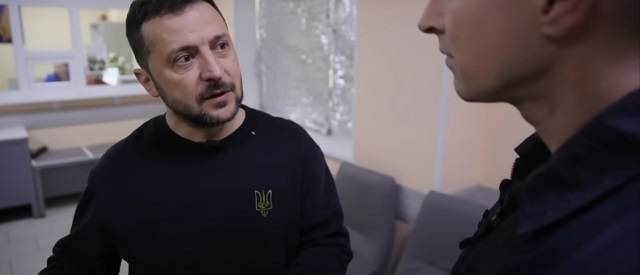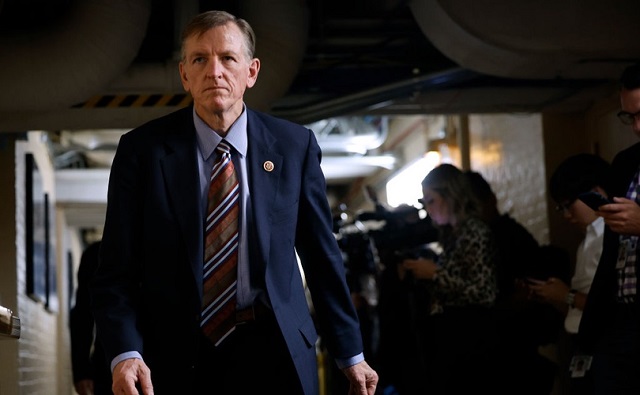Opinion
Paul Wells: A poor choice of venue
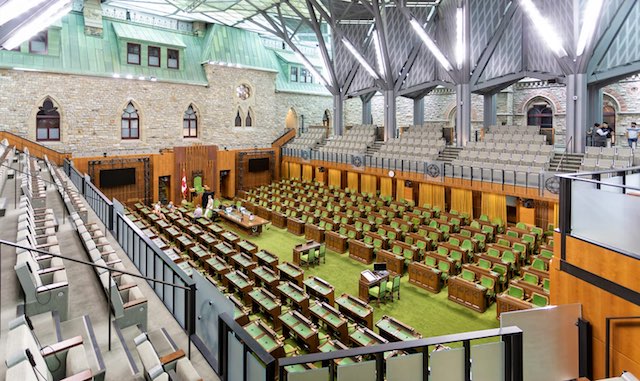
From Paul Wells on Substack
The Liberals wanted to beat Pierre Poilievre in the House of Commons. No such luck.
On Pierre Poilievre’s first day as leader of the Opposition, eleven months ago, the Liberals’ best available minister sought to frame the battle ahead.
“We are going to see two competing visions over the course of this session,” Randy Boissonnault said, largely ignoring Poilievre’s first question.
“The first is our government’s plan to support Canadians and those who need it most. The second is that of the Conservative Party and members of Parliament who would leave Canadians to their own devices.”
Boissonnault’s answer struck me at the time as the best available information about the Trudeau Liberals’ plan for Poilievre. It’s worth revisiting.
Paul Wells is a reader-supported publication. To receive new posts and support my work, consider becoming a free or paid subscriber.
At the time, late in September 2022, Poilievre had won a resounding victory over the rest of the Conservative leadership field. The Trudeau government had an opportunity to influence votes’ perceptions of the Liberals’ latest opponent. Many observers assumed the Liberals would do this through some sort of ad campaign, as Stephen Harper had done against Paul Martin, Stéphane Dion and Michael Ignatieff, and tried to do against Trudeau, always well ahead of an election.
Boissonnault was announcing the Liberals wouldn’t do this. The main parties’ “two competing visions” would become clear throughout “this session,” in the venue where life is divided into sessions: Parliament. (My procedure-wonk friends will remind me that a “session” isn’t a school year, it’s the space between a Throne Speech and a prorogation or dissolution. Still, a year is a good time for an interim check-in, and plainly things are happening.)
I’m going to say it hasn’t gone well for the Liberals. A stack of polls tells me so, but we don’t only need polls. The Cabinet has gathered in Charlottetown to hear from an academic who calls the state of housing in Canada “a crisis.”Meanwhile the guy who ran economic policy for Justin Trudeau’s government for seven years is calling affordable housing “the urgent economic need of today.” Imagine how many urgent economic needs we’ve heard about since 2015. Maybe the urgent economic need all along was to resist the urge to treat every need as urgent. Anyway the Liberals expected they could govern by picking issues that would work to their advantage. Instead an issue has been picked for them.
Poilievre made no secret of his own plan to use housing shortages to illustrate “two competing visions.” Every time he stood that day he repeated that housing prices had doubled under Trudeau. Boissonnault’s response was, in some cases, to ignore the question (“Mr. Speaker, let us talk about how people can pay their bills with our new dental plan”) and in others, to mention the day’s latest government policy: a one-time top-up to the Canada Housing Benefit, which would be worth $500 for people whose family income was under $35,000. The top-up began two months after Boissonnault spoke and ended three months after that, in March of this year. After that, Boissonnault and his colleagues would leave Canadians to their own devices, we might say.
Thank you for reading Paul Wells. This post is public so feel free to share it.
Why has the parliamentary session, as glimpsed since last September, been a bad choice of venue for the Liberals’ narrative of two competing visions? A few reasons.
First, most Canadians ignore Parliament. This trend has accelerated in the last eight years. Partly because the audience for just about any given thing in our society has declined as attention spans fragment. Partly because it’s increasingly obvious that the House of Commons no longer provides even occasional surprise. Stephen Harper and Jean Chrétien used to say surprising things. Not often. But they’d reveal a conversation they’d had, or announce a decision, or cleverly sabotage a question’s intended effect. This crew is earnest and general. Always.
Second, Poilievre likes Parliament more than Trudeau does. Not in the sense that he respects it as an institution. Neither of them does. The whole notion is quaint. But Poilievre looks forward to Question Period, rehearses for it, relishes its limited opportunities. Trudeau, who systematically demotes naysayers, has never believed he should have to put up with any in the middle of his workday.
It’s easy to understand a guy disliking Parliament. But disliking Parliament makes Parliament an odd choice of venue for making any kind of important case.
The third problem with the notion that an ordinary governing year would define Poilievre is that it allowed Poilievre to specialize while the government generalized. Any Canadian government has to manage the normal array of dreary files, the bilateral relationship with the U.S., the post-pandemic recovery, ports and bridges and health transfers and public-sector strikes. Not every day can be a message day, even for a government that tries to make its every act a message. That’s why governing parties often prefer to put the “governing” and “party” parts of their mission under distinct command structures.
It’s often said that in making his campaign team his governing team, Trudeau limited the effectiveness of his government. It’s increasingly clear the problem goes the other way too: How can a Prime Minister’s Office think clearly about politics?
The upshot is that while the Liberals have been fitfully defining their opponent he has been diligently defining them. It has gone better for him than for them. A new poll, by Abacus for the Toronto Star, shows that “more [respondents] think Poilievre is genuine than phoney, strong instead of weak, down to earth instead of elitist.” This will be vexing news for readers who think the Conservative leader is phoney, weak and elitist, but in politics the goal isn’t to believe your own beliefs really hard, it’s to get other people to believe them. Here the Liberals’ problem is much like their problem on housing: It’s as though they just realized they have a job to do.
A note to readers as an election approaches, whether that election happens in 2023, 2024 or 2025. If you have a strong emotional investment in anyoutcome in that election, this newsletter will certainly disappoint you. I’m not here to help Poilievre. I’m not here to defend Trudeau. I see qualities and flaws in each. I might even amaze everyone by mentioning the NDP, once or twice. This isn’t an artificial stance born of some mandate for “objectivity” or, worse, “balance.” I’m selling my opinions here. But my opinions don’t line up cleanly with the party lines in most elections and they won’t in this one.
Readers who are inclined to work fulltime to correct other readers’ opinions should remind themselves that the election won’t be won or lost in the comment board of the Paul Wells newsletter. Thanks, as always, for your support and interest.
Frontier Centre for Public Policy
They spent $8,000,000 without putting one shovel in the ground
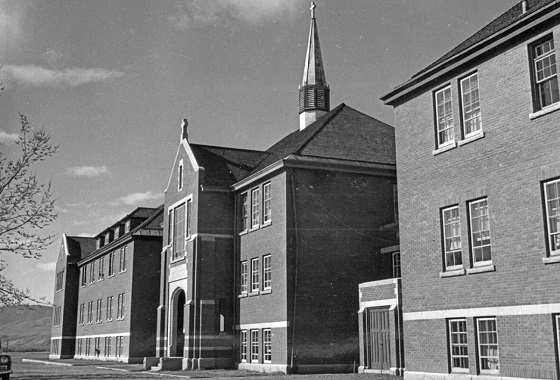
From the Frontier Centre for Public Policy
That’s how much money the Kamloops Band spent on…..exactly what we have no idea. If you remember, that indigenous band claimed that the people running the local residential school had, for unexplained reasons, secretly buried 215 of the students under their care. They had no evidence that would have stood up in any court in the western world to back up that highly unlikely claim. But the federal government immediately gave them $8,000,000 to……well, that’s the mystery. What did they spend that money on? They have not put one shovel in the ground, but apparently they have somehow spent the $8,000,000 of taxpayers’ hard earned money. It was claimed that the money would be used to uncover the “heartbreaking truth”. But the only heartbreaking truth seems to be the complete waste of tax dollars.But it gets worse. A whole lot worse.
Because the Trudeau government- in addition to lowering the flag for six months, and performing teddy bear pantomimes in community ceremonies – then went on to promise not just $8,000,000, but $320,000,000 – to any other indigenous community that wanted to make similar claims.
It should come as no surprise to any sentient being that dozens of poor indigenous communities immediately took the bait and claimed the prize.
So, the result is that hundreds of millions of dollars have been spent somehow. But with no graves found. In fact, none have even put a spade in the ground.
Well, that’s not completely correct. The Pine Creek community in Manitoba was absolutely convinced that the stories about indigenous children dying under sinister circumstances, and being secretly buried under the local church, must be true. After all, they had all heard those stories.
The stories weren’t true. Excavations went ahead, and what was found? Stones.
The stories about priest murders and secret burials are just that. Stories. Meanwhile, hundreds of millions of dollars that should be spent on useful endeavours – like providing better health care for indigenous and non-indigenous Canadians – are being wasted. Rural paramedic services are being constantly cut back, for example. How many rural residents- indigenous as well as non-indigenous- will die from heart attacks because the paramedics were simply too far away from them to get them to the hospital in time to save their lives.There’s no money to improve rural medical services because millions are being wasted searching for phantom “missing children” and “unmarked graves”?
Canadians are beginning to wake up to the fact that they have been had. Somebody is getting rich on all of this government largesse. But it’s not poor indigenous Canadians. They remain stuck on the bottom rung of the socio-economic ladder. And medical and other essential services go wanting, because of this complete waste.
So, are there people in “unmarked graves”?
Absolutely. Billions of them in fact. This planet is basically one huge graveyard. The number of marked graves, with headstones naming the person interred, is a tiny fraction of the billions of people who have died on this planet.
Are the remains of some of the children who died from disease while attending residential school in unmarked graves? Absolutely. For that matter, so are the remains of many of the children who attended day schools, or no school at all in unmarked graves. There is nothing sinister about this fact of life. It simply means that the families of those children did not keep up the graves and cemeteries where the children were interred. (The vast majority of children who died while enrolled in residential schools are buried on their home reserves). This is not a criticism of those families. In fact, some of those families might have died out, and cemetery upkeep became impossible. Others just had different priorities.
So, what we have is just a sad fact of life. Many children died of diseases a hundred plus years ago who would not have died today. Modern medicine is a wonderful thing. And indigenous children died in much greater numbers, for many different reasons. Tuberculosis, in particular, was a major killer of indigenous people.
In fact, tuberculosis is still 290 times higher in the indigenous community than in the mainstream community.
But the fact that death from disease was so much higher in the indigenous community than in the non-indigenous community has nothing to do with residential schools. It has nothing to do with the people running the schools, many of whom devoted their lives to working with indigenous people.
So, we come around to the question – why is $320,000,000 being spent to find the long lost burial places of children, simply because their families decided – for reasons of their own – to not keep up their gravesites? Because it is not true that there are thousands of “missing children” as alleged. Rather, as Professor Tom Flanagan puts it, in “Grave Error”, there are thousands of “forgotten children”. And as the special interlocutor, Kimberley Murray puts it, “These children are not missing, they are buried in local cemeteries”.
Perhaps that’s the reason that Murray’s upcoming National Gathering on Unmarked Burials has been postponed. Because there is nothing to say. Her six figure salary, and those of all of her staff and associates – to say nothing of the $320,000,000 that has been spent – somehow – on searching for phantom graves and phantom “missing children” – could have been better spent on the real needs of living children.
We are approaching the three year anniversary of the Kamloops claim that 215 children from the local residential school had been somehow killed and secretly buried in the apple orchard on the school grounds. There was no good reason to believe that highly improbable claim in the first place. It was only the foolish and emotional reaction of the Trudeau government, and the incompetence of the media that persuaded Canadians that they should take that nonsensical claim seriously in the first place.
It is time to get back to sanity. Treat those who claim – with no real evidence – that priests murdered and secretly buried children – exactly the same way that we treat those who claim that the Martians have landed, or that aliens have abducted their mothers.
Be polite. But don’t finance their delusions.
Brian Giesbrecht, retired judge, is a Senior Fellow at the Frontier Centre for Public Policy
Great Reset
Canadian MP warns new WHO pandemic treaty may enshrine COVID-era freedom restrictions
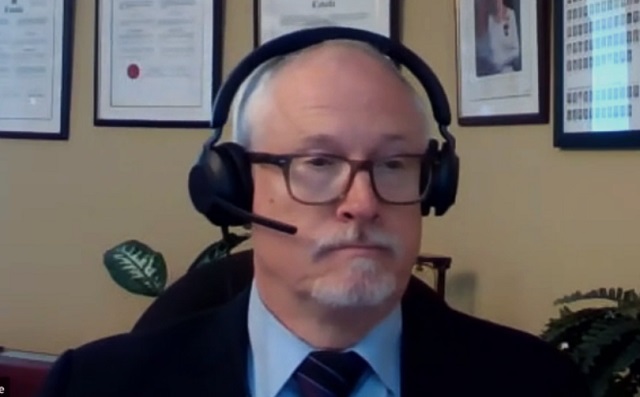
MP Colin Carrie
From LifeSiteNews
Colin Carrie recounted the freedom-throttling measures the Canadian government took during the COVID outbreak, warning that the WHO’s Pandemic Agreement may help make such measures permanent.
Canadian Member of Parliament (MP) Colin Carrie warned this week that proposed World Health Organization (WHO) agreements with a passing deadline of late May could “institutionalize” freedom-throttling COVID “pandemic mistakes.”
Carrie recounted the liberty-crushing COVID-era events that took place in Canada as well as around the world during the first-ever Sovereignty Summit held at the U.S. Capitol on Thursday, an event protesting the WHO’s pending threat to the sovereignty of its member nations, attended virtually by political leaders from around the world.
“Since COVID-19’s lockdowns and mandates, Canadians have seen our sovereignty, our charter rights and our civil liberties tested,” said Carrie, going on to point out that Canadian Prime Minister Justin Trudeau has admitted that he admires the “basic dictatorship” of China.
It was under such a leader as Trudeau that “freedom of speech, freedom of movement, freedom of consent and freedom of medical treatment were all enthusiastically challenged” by the government through “COVID dictates centrally controlled and communicated by the WHO,” Carrie noted.
Trudeau, moreover, “intentionally created an identifiable minority group — anti-vaxxers — and gleefully used all the power of the Canadian government to marginalize, dehumanize and keep over 6 million Canadians from fully participating in Canadian society,” Carrie declared.
He recalled how the Emergencies Act was “used to freeze bank accounts” while “businesses were shattered, seniors and loved ones died alone,” “children’s education was compromised and churches were closed,” affirming that Canadians do not want to relive this scenario during another real or supposed health emergency according to the dictates of the WHO.
Carrie went on to question why the WHO is saying the new Pandemic Agreement is “non-binding” when, according to the MP, the term “non-binding” was removed from the definitions of the treaty.
“Why would any country sign on to a new treaty when we haven’t conducted a serious evaluation of the last pandemic policy response? Will this treaty institutionalize WHO’s COVID pandemic mistakes?”
In a March 20 press release, the WHO called for an “urgent agreement from international negotiators on a Pandemic Accord … to bolster the world’s collective preparedness and response to future pandemics.”
“Only a strong global pact on pandemics can protect future generations from a repeat of the COVID-19 crisis,” a collective of heads of state wrote in a joint open letter to leaders of WHO member states.
A growing number of public figures as well as U.S. states and elected officials have raised the alarm about the so-called Pandemic Agreement in recent months.
In a letter dated May 22, almost half the U.S. governors, all of them Republicans, signed a letter to President Joe Biden declaring that they will resist any efforts of the WHO to control public policy in America through its proposed “Pandemic Agreement” and amended International Health Regulations (IHRs).
Earlier this month, Sen. Ron Johnson of Wisconsin also rallied every Republican in the U.S. Senate to sign an open letter imploring the Biden administration to reject the pending agreements being considered at the World Health Assembly (WHA) in late May.
-

 Automotive14 hours ago
Automotive14 hours agoForget Tariffs: Biden Should Look to Domestic Mining to Thwart Chinese EVs
-

 Business2 days ago
Business2 days agoGovernment red tape strangling Canada’s economy
-

 MacDonald Laurier Institute1 day ago
MacDonald Laurier Institute1 day agoToronto’s “Sankofa Square” – The terrible folly and historic injustice of erasing the legacy of abolitionist Henry Dundas
-

 Great Reset2 days ago
Great Reset2 days agoRepublican governors sign letter opposing WHO treaty
-
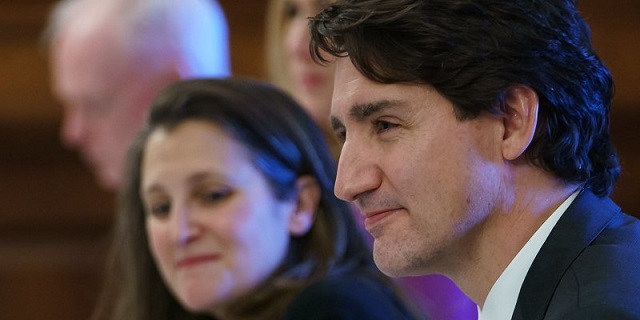
 Fraser Institute1 day ago
Fraser Institute1 day agoFederal government should have taken own advice about debt accumulation
-

 Great Reset15 hours ago
Great Reset15 hours agoCanadian MP warns new WHO pandemic treaty may enshrine COVID-era freedom restrictions
-

 Media23 hours ago
Media23 hours agoTrudeau’s Online News Act has crushed hundreds of local Canadian news outlets: study
-
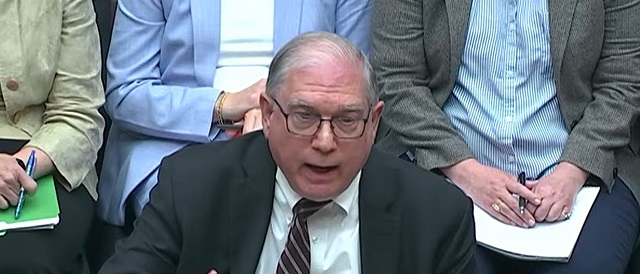
 COVID-192 days ago
COVID-192 days agoHouse COVID Committee Confirms What We Have Long Suspected — The Feds Really Hate Transparency


